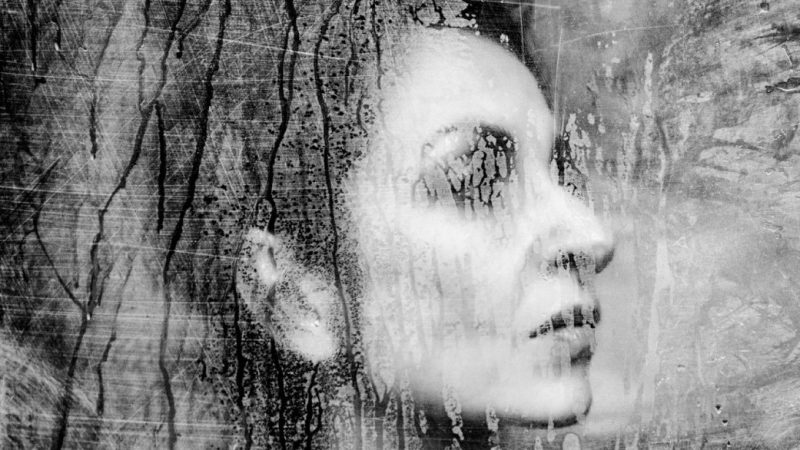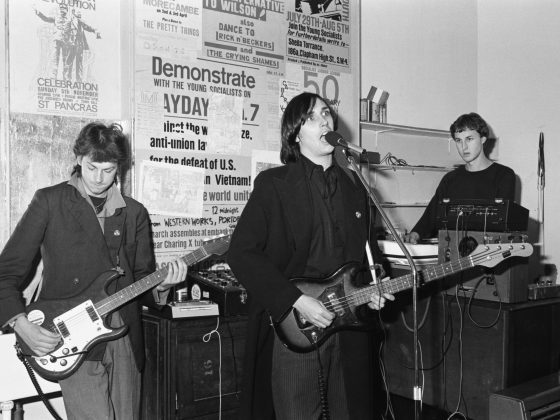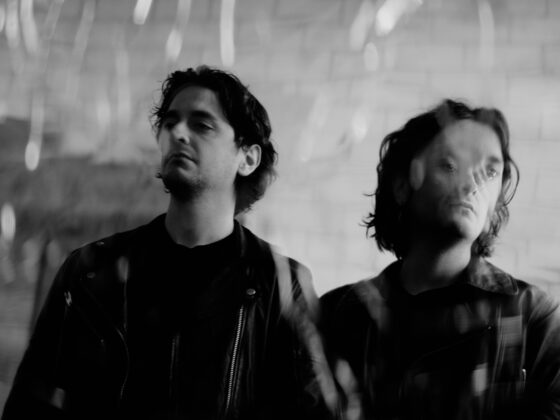Should I be silently alone
Anesthetized for too long
Come and make my bed in crime
It’s the only way to kill time
Thalie Némésis, the multifaceted musical alchemist and poet who first emerged from the south of France in 2013, returns with her latest EP, Catarsi Apotropaica. Known for seamlessly blending cold wave, industrial rhythms, and ethnic elements, her music evokes an intense emotional darkness tinged with mystical undertones, evoking comparisons to Dead Can Dance, Siouxsie and the Banshees, Loreena McKennitt, and Faith and the Muse.
With Catarsi Apotropaica, Thalie Némésis delves even deeper, presenting five apotropaic incantations: musical rites designed to repel curses and dark portents, deeply rooted in the ancestral traditions of ancient Greece and Armenia. This release resonates as an ancestral battle cry, a hymn to resistance and remembrance, invoking the potent spirits of forebears and celebrating the unwavering strength of women.
Steeped in profound political and spiritual themes more intense than her prior works, Catarsi Apotropaica addresses generational trauma and visionary insight. It channels the archetypal voice of Woman, as embodied by Cassandra, cursed to articulate harsh truths met only with deaf ears. Her voice prophetically foretells Armenia’s tragedies, submerged in a deafening silence. In this compelling offering, the archetype of Woman merges with Armenia itself, transforming into a powerful allegory of collective suffering, catharsis, and resilience. Both entities cry out in unified anguish and resistance…a fierce, unforgettable lament echoing through history as the voice of the Fury.
A Barbaric Language pulses with icy vengeance; its dark, dirge-like cinematics transport the listener to a far-off place, accompanied by a stringed, Kamantcheh-like sound and clanging percussion that effectively illustrate raw emotional wounds through metaphors of erasure and spectral emptiness, reducing adversaries to ghostly, powerless reflections. Thalie contemplates existential ambiguity, invisibility, and identity through the prism of iconic female archetypes, exploring the tension between societal expectations and authentic self-expression.
A demi-mots is an incantation that blends guitar, Middle Eastern instrumentations, and industrial textures reminiscent of 1990s-era Dead Can Dance, capturing an introspective struggle with identity, invisibility, and self-perception. The song’s protagonist grapples with existential uncertainty, questioning their presence and significance as partial or incomplete. By invoking figures like “Sapho” and “Virago,” they explore contrasts between perceived femininity and strength, hinting at deeper tensions about societal expectations, personal authenticity, and the elusive journey toward self-understanding and validation.
Acedia Is My Partner In Crime weaves together intricate layers of unsettling rhythms, elements of industrial Middle Eastern folk, and sultry vocals. This evocative soundscape explores themes of emotional numbness and an insatiable craving for stimulation through daring and depraved acts. Thalie Némésis confronts emotional stagnation head-on, opting for transgression and subversive complicity to reclaim vitality from spiritual numbness and boredom. The repeated mention of “Acedia” underscores a profound sense of spiritual apathy and boredom, driving the speaker toward rebellion as a means of reclaiming vitality and purpose.
Cassandra (le baiser de la fin), with its mechanical, industrial textures and icy resonance, quakes with vocal incantations that position the song’s protagonist as a potent spiritual figure (totem, priestess, prophetess), drawing parallels to mythical figures such as Orpheus. This assertion of strength starkly contrasts with betrayal, illuminating the harsh dynamics of power, desire, and resentment.
The EP’s closing track, “No Surrender,“ is a testament to Thalie’s intricate artistry, eschewing simple categorization within the realms of post-punk, goth, and alt-rock. This captivating piece showcases an eclectic array of instruments, including what our ears hear as possibly being pungi and hammered dulcimers, and a melange of percussion. These diverse sounds layer upon one another, creating a mesmerizing experience that may leave the uninitiated listener delightfully bewildered as they get lost in its intricacies.
Lyrically, the song affirms unwavering resilience and defiance in the face of abandonment, isolation, and violation. Repeated declarations of refusal to surrender underline relentless determination, even when broken or forgotten. The imagery of desecration and siege highlights the intensity of suffering endured, yet the speaker emerges strengthened, embodying countless identities united in defiant endurance and indestructible spirit.
Listen to Catarsi Apotropaica below and order the album here.
Thalie Némésis’s international collaborations span the globe, partnering with prominent artists from the darkwave, noise, industrial, and experimental scenes across Ukraine, the UK, USA, Sweden, Germany, and Colombia. Her work has graced numerous notable compilations, earning critical acclaim.
Follow Thalie Némésis:

















 Or via:
Or via: